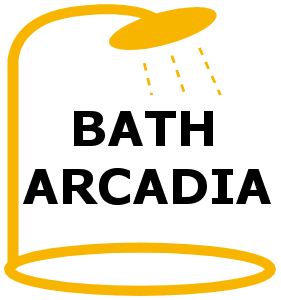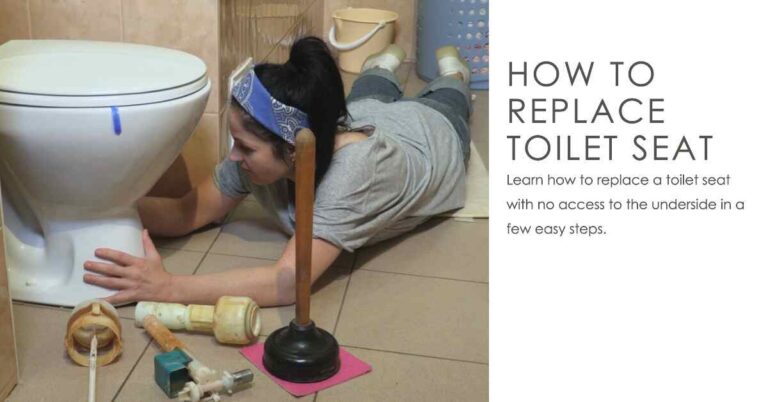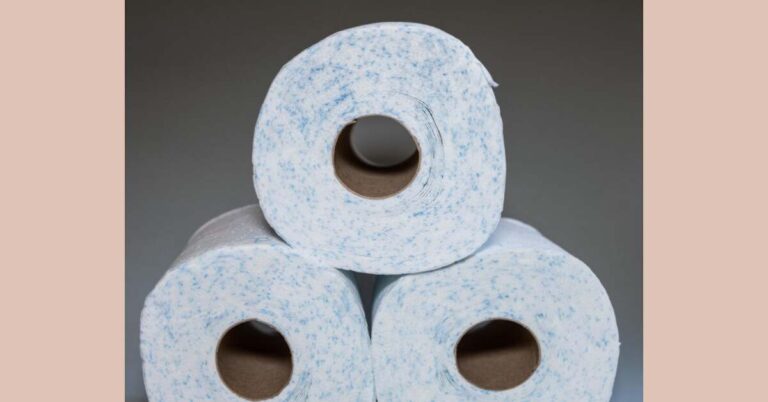In this introductory section, we’ll explore the innovative concept of using denture cleaner as an effective means to clean the toilet. We will delve into the significance of maintaining a hygienic toilet and how this unorthodox approach can be a game-changer in your cleaning routine.
Denture cleaner, typically associated with oral hygiene and maintaining the cleanliness of dentures and prostheses, can surprisingly be repurposed as a potent toilet cleaning agent. It may not be the first product that comes to mind, but its cleaning capabilities extend beyond dental care.
The Importance of a Clean Toilet
A clean toilet is more than just a matter of aesthetics; it is a cornerstone of maintaining a healthy and sanitary environment in your home. Here are a few reasons why keeping your toilet clean is crucial:
- Hygiene: A disinfected and sanitary toilet is essential to prevent the spread of harmful bacteria and viruses.
- Odor Control: A clean toilet helps control odors and ensures your bathroom remains fresh and inviting.
- Longevity: Regular cleaning with the right products can extend the lifespan of your toilet by preventing stains and buildup.
- Guest Impressions: A clean toilet leaves a positive impression on guests and visitors.
Now that we understand the importance of a clean toilet let’s move on to the practical aspect of using denture cleaner.
How to Clean a Toilet with Denture Cleaner
Now that we understand the importance of a clean toilet and the potential of denture cleaner, let’s delve into the practical steps of using denture cleaner to clean your toilet effectively. This method combines denture cleaner’s cleaning agent properties with disinfectant and sanitizing qualities.
What You Will Need
Before we begin, gather the following items:
- Denture Cleaner Tablets: These effervescent tablets are readily available in most drugstores and supermarkets. They contain powerful cleaning agents.
- Toilet Brush: An essential tool for scrubbing and reaching all toilet bowl parts.
- Gloves: To protect your hands from contact with cleaning agents.
- Safety Precautions: Always follow the safety guidelines mentioned in the denture cleaner packaging. Keep the area well-ventilated.
Step-by-Step Guide
Here’s a step-by-step guide on how to clean your toilet with denture cleaner:
- Put on Gloves: Wear protective gloves to safeguard your hands during cleaning.
- Flush the Toilet: Start by flushing the toilet to wet the inside of the bowl. This will make it easier for the denture cleaner to dissolve and spread.
- Drop in the Denture Cleaner Tablet: Drop one or two denture cleaner tablets into the toilet bowl. The effervescent action will help dissolve stains and residue.
- Wait for Effervescence: Allow the tablets to fizz and dissolve for a few minutes. This enthusiasm helps break down stains, mineral deposits, and bacteria.
- Scrub with a Toilet Brush: After the tablets have dissolved, use a toilet brush to scrub the bowl’s inside thoroughly. Pay close attention to areas with stains or buildup.
- Flush Again: Once you’ve scrubbed the bowl, flush the toilet again to rinse away the cleaner and any loosened debris.
- Final Wipe: For added cleanliness, you can wipe down the exterior of the toilet with a sanitizing solution or disinfectant.
- Dispose of Gloves: Carefully remove and dispose of the gloves, and wash your hands thoroughly.
Safety Precautions
- Always follow the manufacturer’s instructions on the denture cleaner packaging.
- Ensure proper ventilation in the bathroom to avoid inhaling any fumes.
- Keep denture cleaner tablets out of reach of children.
Following these steps, you can harness the cleaning power of denture cleaners to maintain a disinfected, sanitary, and sparkling-clean toilet.
Other Uses of Denture Cleaner
While denture cleaner is primarily designed for maintaining oral hygiene, its cleaning capabilities extend beyond dentures. In this section, we will explore the versatility of denture cleaners as a cleaning agent for various household items and surfaces.
1. Cleaning Dentures
Before we explore other applications, let’s emphasize the importance of using denture cleaner for its primary purpose – cleaning dentures. Proper denture care involves daily cleaning to remove plaque and bacteria, and denture cleaner tablets are specifically formulated for this task. Regular use ensures your dentures remain disinfected and free from stains.
2. Household Items
Denture cleaner can also be a handy tool for cleaning various household items, including:
- Coffee Mugs: The denture cleaner’s effervescent action helps remove coffee stains and odors from your favorite mugs.
- Stained Clothes: Soak stained clothing items in a water and denture cleaner solution to help lift stains before washing.
- Grout: The cleaning power of denture cleaners can effectively brighten up dingy grout lines in your bathroom or kitchen.
3. Versatile Cleaning Agent
Denture cleaner’s versatility lies in its ability to break down stains, remove bacteria, and provide a clean result. It can be a useful addition to your cleaning arsenal, especially for items that may be challenging to clean with regular household cleaners.
4. Denture Brush or Soft-Bristled Toothbrush
When using denture cleaner for non-oral cleaning, you can use a brush or a soft-bristled toothbrush to scrub surfaces gently. These brushes are effective in reaching crevices and ensuring thorough cleaning.
5. Disinfection
One of the key benefits of using denture cleaner for cleaning is its disinfectant properties. It helps eliminate harmful bacteria and microorganisms, making it a suitable choice for items that require thorough sanitization.
Incorporating denture cleaner into your cleaning routine for these purposes can save you time and effort while maintaining a clean and hygienic environment in your home. However, it’s essential to use it as directed and always follow the safety precautions mentioned on the packaging.
Alternatives to Denture Cleaner for Cleaning Toilets
While denture cleaners can be an effective and versatile cleaning agent for toilets, exploring other options is essential to determine what suits your preferences and cleaning needs. This section will discuss various alternatives to denture cleaners for cleaning toilets, highlighting their pros and cons.
1. Toilet Bowl Cleaner
Toilet bowl cleaner is a specialized cleaning product explicitly designed for toilet sanitation. It comes in various forms, including liquid, gel, and tablets. Here’s a breakdown of its pros and cons:
Pros:
- Effective Cleaning: Toilet bowl cleaner is formulated to remove stains, kill bacteria, and deodorize the bowl.
- Convenience: Specifically designed for toilets, it requires minimal effort for effective cleaning.
Cons:
- Chemical Odor: Some toilet bowl cleaners can have a strong chemical odor.
- Toxic Ingredients: They may contain harsh chemicals, requiring caution during use.
2. Baking Soda and Vinegar
A natural and eco-friendly alternative combines baking soda and vinegar. This method is effective and safe for your family and the environment:
Pros:
- Natural: Baking soda and vinegar are safe and chemical-free.
- Deodorizes: They neutralize odors effectively.
Cons:
- May Require More Scrubbing: While effective, this method may require more elbow grease to remove tough stains.
- Fizzing Action: The fizzing action of vinegar and baking soda may not be as strong as denture cleaner tablets.
3. Hydrogen Peroxide
Hydrogen peroxide is another alternative known for its disinfecting properties. Here are the pros and cons:
Pros:
- Disinfectant: Hydrogen peroxide effectively kills bacteria and viruses.
- Safe: It’s generally considered safe when used as directed.
Cons:
- Potential Bleaching: It may lighten the color of toilet bowl surfaces over time.
- Handling: It should be handled with care and kept out of reach of children.
4. Commercial Disinfectant Cleaners
There are various commercial disinfectant cleaners available that can be used for toilet cleaning. These cleaners are designed for sanitizing and come in different formulations:
Pros:
- Effective Disinfection: They are formulated to kill germs and bacteria.
- Versatility: This can be used for other household cleaning tasks.
Cons:
- Chemical Ingredients: Some commercial disinfectant cleaners may contain harsh chemicals like toilet bowl cleaners.
- Cost: They can be more expensive than other alternatives.
5. Citric Acid
Citric acid is a natural acid found in citrus fruits and can be used to clean toilets effectively:
Pros:
- Natural: Citric acid is eco-friendly and safe.
- Scale Removal: It removes mineral scales and rust stains.
Cons:
- May Require Soaking: Some stains require longer soaking periods with citric acid.
- Availability: It may not be as readily available as other options.
In choosing an alternative to denture cleaner for cleaning toilets, consider your cleaning preferences, the level of disinfection needed, and any sensitivities to chemicals or odors. Each option has its merits, and you can select the one that best aligns with your priorities.
Conclusion
We’ve explored the unique concept of using denture cleaners as an effective means to clean toilets. We’ve emphasized the significance of maintaining a clean and sanitary toilet in your home and provided a detailed step-by-step guide on cleaning a toilet with a denture cleaner.
Denture cleaner, primarily designed for oral hygiene and denture care, has proven to be a versatile and potent cleaning agent. Its cleaning capabilities extend beyond dental care, making it a valuable addition to your household cleaning routine.
We’ve also discussed other creative uses of denture cleaner, including its effectiveness in cleaning coffee mugs, stained clothes, and grout stains. Its disinfectant properties make it a valuable asset in maintaining a sanitary environment in your home.
While denture cleaner offers a unique and effective solution for toilet cleaning, we’ve also explored alternatives such as toilet bowl cleaner, baking soda and vinegar, hydrogen peroxide, and commercial disinfectant cleaners. Each of these alternatives has pros and cons, allowing you to choose the cleaning method that best suits your preferences and needs.
Final Thoughts
Using a denture cleaner to clean toilets is not just a novel idea; it’s a practical and effective cleaning solution. It combines the cleaning power of denture cleaner with its disinfectant and sanitizing qualities to leave your toilet clean, fresh, and bacteria-free.
Whether you opt for denture cleaner or one of the alternatives discussed, the key takeaway is maintaining a hygienic and clean toilet in your home. Regular cleaning ensures a pleasant environment and contributes to the longevity of your toilet fixtures.
Experiment with different cleaning methods, stay safe by following safety guidelines and enjoy the benefits of a sparkling clean toilet. Incorporating these cleaning techniques into your household routine can lead to a healthier and more inviting living space.
Thank you for joining us in exploring the world of toilet cleaning with denture cleaners and alternative methods. We hope this guide has been informative and helpful in enhancing your cleaning endeavors.
Happy cleaning!
FAQs:
Yes, denture cleaners can be a safe and effective choice for toilet cleaning. Learn how to use it properly in our guide.
Absolutely! Denture cleaners can clean coffee mugs, stained clothes, and more.
Alternatives like baking soda and vinegar offer natural and effective toilet cleaning solutions.
Regular cleaning is recommended to maintain a hygienic toilet. Follow our guide for best practices.
Explore the benefits and considerations when using denture cleaners or other cleaning agents.


